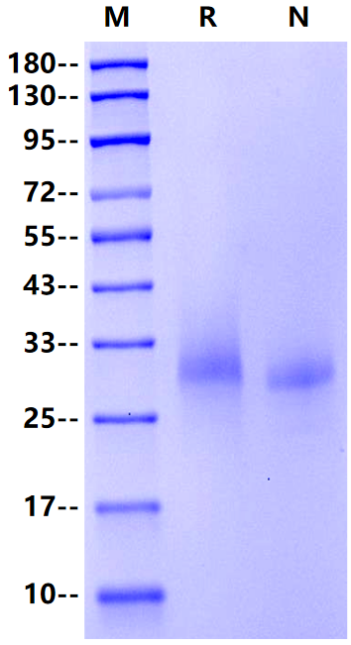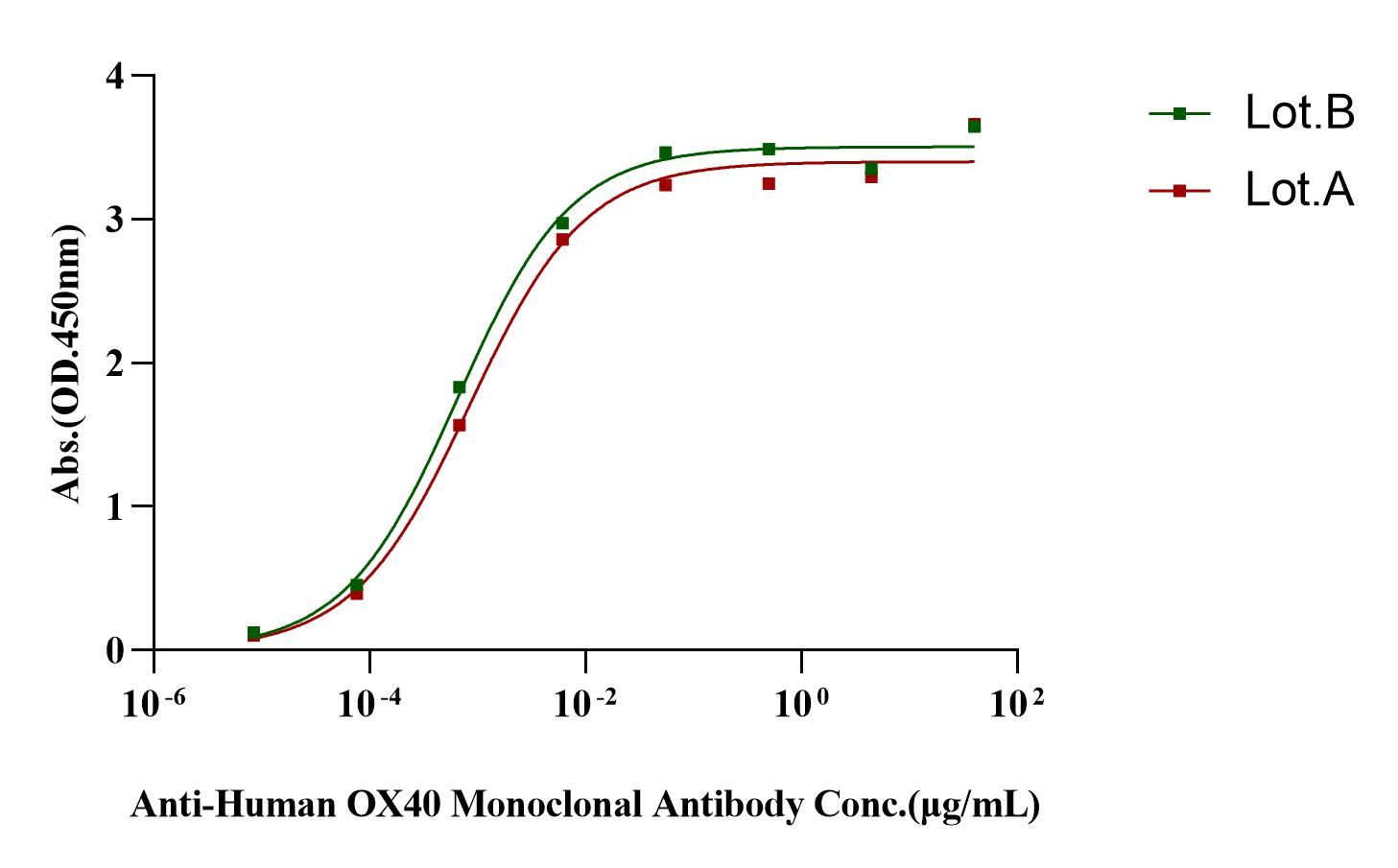Leu29-Ala216, with C-terminal 6*His
LHCVGDTYPSNDRCCHECRPGNGMVSRCSRSQNTVCRPCGPGFYNDVVSSKPCKPCTWCNLRSGSERKQLCTATQDTVCRCRAGTQPLDSYKPGVDCAPCPPGHFSPGDNQACKPWTNCTLAGKHTLQPASNSSDAICEDRDPPATQPQETQGPPARPITVQPTEAWPRTSQGPSTRPVEVPGGRAVAHHHHHH
28-30kDa (Reducing)
>95% by SDS-PAGE&RP-HPLC
PBS, pH7.4
Reconstitute at 0.1-1 mg/ml according to the size in ultrapure water after rapid centrifugation.
· 12 months from date of receipt, lyophilized powder stored at -20 to -80℃.
· 3 months, -20 to -80℃ under sterile conditions after reconstitution.
· 1 week, 2 to 8℃ under sterile conditions after reconstitution.
· Please avoid repeated freeze-thaw cycles.
OX40 is a member of the TNF receptor family, which is mainly known to promote effector T cell differentiation, proliferation, long-term survival, and pro-infammatory cytokines production, while inhibiting differentiation and suppressive activity of regulatory T cells (Tregs). It is expressed on activated CD4+ and CD8+ T cells, as well as on other cell types. The OX40 ligand, expressed by antigen presenting cells (APC), activates the OX40 signaling pathway which promotes a robust immune response. The interaction of OX40 with OX40 ligand results in enhanced CD4+ and CD8+ cell proliferation, stimulated cytokine production, and increased survival of antigen specific memory T cell. OX40 expression was revealed as an unfavorable prognostic marker and might be a target for immunotherapy in the future. OX40 was identified as a novel molecule in EC; its elevated expression tends to signify favorable clinical outcomes. As a second immune checkpoint, OX40 may have potential implications for the prognosis and immunomodulation of EC patients. In mice, the absence of OX40 has been shown to cause a strong reduction in the number of effector memory CD4+ cells. Furthermore, the CD8+ response was reduced and tumor growth was accelerated. Accordingly, it is comprehensible that the immune-stimulating properties of OX40 agonists could overcome some of the immunosuppressive properties within tumor environment.



Immobilized OX40/TNFRSF4 His Tag, Human (Cat. No. UA010153) at 2.0μg/mL (100μL/well) can bind Anti-Human OX40 Monoclonal Antibody (Ivuxolimab) with EC50 of 2.03-2.29 ng/mL.
